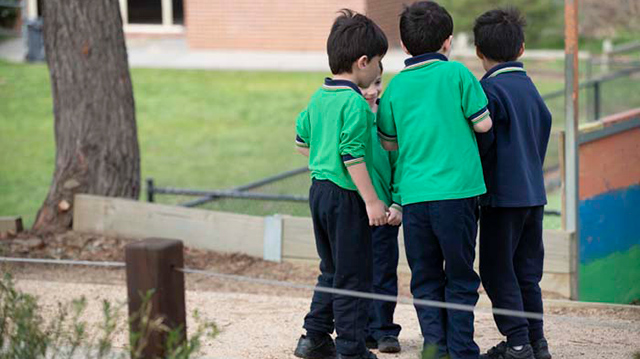On this page
Download this Fact Sheet:
Fact Sheet: Decision-making: early childhood (163.1 KB, PDF)
How do decision-making skills develop?
Learning the skills for making good decisions takes time.
These skills are influenced by the expectations, values and interactions children experience within their unique cultural, social, family and community contexts. As they navigate these environments, children build decision-making skills through opportunities to make choices and experience their consequences. Through this, children begin to understand decision-making.
Young children develop decision-making skills at different rates, and their approach may be influenced by individual strengths, abilities and needs. Some children may require additional support or adapted strategies to engage in decision-making opportunities.
Children mostly learn decision-making skills from those around them. This occurs when they:
- observe others
- hear about and discuss values
- work with their peers to solve simple problems
- have opportunities to make choices
- experience the consequences of their choices.
Young children are still building many of their social and emotional learning skills. Because of this they are more likely to:
- focus on one aspect of a situation
- focus primarily on their own perspective
- focus on immediate benefits
- take action before fully considering the options
- make simple distinctions between good and bad, right and wrong
- show a preference for achieving their goals quickly.
A good decision is one that’s most likely to lead to a positive outcome for everyone involved and considers how it affects others.
By discussing the steps of decision-making, you can help motivate them to think through their choices and understand the important things to consider when making decisions. Start with simple choices and gradually build up to bigger, more complex problem-solving as children’s capabilities and skills improve. Some children may need additional support, such as visual prompts or a guided discussion, to explore their choices effectively.
Key steps in the decision-making process
1. Work out the problem (choice or decision)
Help the child identify and label their feelings so that they can understand the problem. For some children this may involve alternative communication methods, such as visual aids or gestures, to help them express their understanding.2. Plan to solve the problem
Depending on their age and abilities, prompt or help them to brainstorm solutions. Talk about what might happen with each possible solution. This encourages children to consider different solutions and weigh their potential outcomes before choosing what to do next. Where needed, provide scaffolding or alternative ways to explore options, such as role-playing or using social stories.3. Offer support
Sometimes a child will need your support to take action, or the reassurance that you’re nearby. As they get older, children will be able to do more problem-solving themselves and let you know how they go later.4. Check back/Reflect
Ask the child about the choice they made – did it help or not? This is important – if you don’t check back and show the child how to try again, they may lose an opportunity to learn, or lose confidence in your capacity to help them. Encouraging children to reflect on their decisions in a way that suits their communication style helps build understanding and confidence.Strategies for early childhood educators
From birth, children can gain confidence when adults provide gentle guidance and, over time, encourage them to take reasonable responsibility for themselves. You can:
Provide a caring, safe, predictable and responsive environment
In this environment, children can explore and practise making decisions. Consider how the environment can be adjusted to support all children, including those with additional needs.
Create opportunities for symbolic play
Symbolic play boosts thinking and problem-solving skills. Children think creatively during this kind of play. They learn how to negotiate with each other and to hold several things in mind at once. Symbolic play stimulates basic skills that mature into the ability to organise play, think things through and cope with feelings. Providing a variety of play materials and flexible ways to engage helps ensure all children can participate.
Model planning skills
Being able to think ahead and plan helps with problem-solving and decision-making. This ability mostly begins in infancy and develops over the first few years. You can model planning, talking aloud as you plan, and giving children chances to practise planning in ways they can manage.
Play games and tell stories
Toddlers often enjoy ‘peek-a-boo’, ‘hide and seek’, and games where they can copy each other’s actions. These games help children build on thinking and planning skills. Preschool children often like to play games like ‘Simon says’ and ‘statues’ which require them to use self-control and think before they act. While telling and reading stories, children learn to think ahead when adults stop and ask them things like ‘What might happen next?’ or ‘What would be a different ending?’ Ensuring that play activities are accessible to all children, including those with additional needs, supports inclusivity in decision-making opportunities.
Practise learning
Give children the opportunity to:
- practise decision-making from as young as possible initially limiting the choice to one or two things – the blue cup or red cup
- try things and succeed - and learn from mistakes, with support to try again
- practise attending to a task (by breaking it down into small sections they can complete and achieve).
Through these experiences, children can build the confidence and skills to approach challenges thoughtfully and constructively.
-
Bibliography
Collaborative for Academic, Social, and Emotional Learning (CASEL) (2018). Core SEL competencies. Chicago: CASEL. Retrieved from https://casel.org/core-competencies/.
